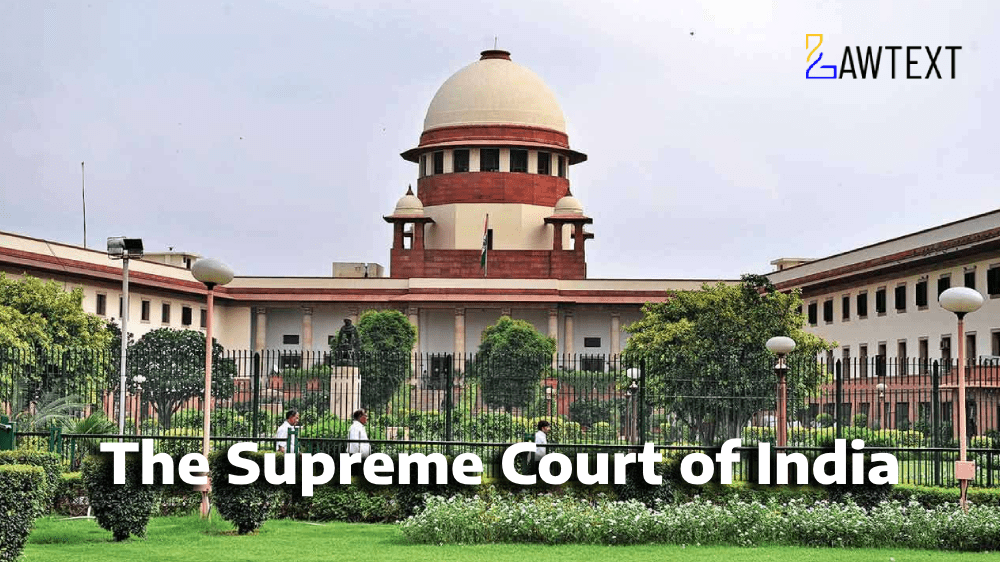"Supreme Court Decides on AERA's Right to Appeal: Can Regulatory Authorities Challenge Their Own Decisions?" "Clarifying the distinction between regulatory and quasi-judicial functions in appeal maintainability."

CASE NOTE & SUMMARY
Authority of India (AERA) before the Supreme Court against the Telecom Disputes Settlement and Appellate Tribunal (TDSAT) under the Airport Economic Regulatory Authority Act, 2008. The key issue addressed was whether AERA, being a quasi-judicial authority, could contest its own orders, particularly those concerning tariff determination for aeronautical services.
Main Facts (Para-Wise Breakdown):
1. Statutory Background (Pg. 4-8)
- The case stems from AERA's appeal under Section 31 of the AERA Act, 2008, challenging TDSAT judgments.
- The AERA Act regulates tariffs and performance standards for aeronautical services at major airports in India.
- Sections 13 and 18 of the Act detail AERA’s roles, tariff determinations, and appeal procedures, which were central to the legal debate.
2. Submissions by Respondents (Pg. 11-14)
- The respondents argued that AERA, being a quasi-judicial body, cannot file an appeal, as it would be tantamount to challenging its own decision.
- They pointed to legal precedents regarding quasi-judicial authorities being barred from defending their own orders in appeals.
3. Submissions by AERA and Union Government (Pg. 13-14)
- The Union Government and AERA's counsel countered, arguing that AERA was a regulatory body with a public duty, and should be able to defend its tariff determinations.
4. Issues Before the Court (Pg. 14-15)
- Can AERA contest appeals regarding its tariff orders before TDSAT?
- If not, does AERA have the right to appeal against TDSAT’s orders under Section 31 of the AERA Act?
5. Court’s Analysis (Pg. 15-45)
- The Court explored whether AERA’s function of tariff determination was adjudicatory or regulatory. It referred to various precedents, such as Sitaram Sugar and PTC India, concluding that tariff determination is a regulatory, not quasi-judicial, function.
- The Court discussed the principle that authorities with adjudicatory functions should not defend their decisions in appeals. However, it clarified that AERA’s regulatory role allowed it to defend public interest decisions.
6. Conclusion (Pg. 53)
- The Court held that AERA is performing regulatory, not quasi-judicial functions when determining tariffs. Therefore, it is entitled to contest appeals regarding its regulatory decisions in the interest of public policy.
Acts and Sections Discussed:
- AERA Act, 2008:
- Section 13: Functions of AERA, including tariff determination.
- Section 18: Procedure for appeals before TDSAT.
- Section 31: Appeal to the Supreme Court against orders of the Tribunal.
- Relevant Case Law:
- PTC India Ltd. v. Central Electricity Regulatory Commission
- Sitaram Sugar Co. Ltd. v. Union of India
Ratio Decidendi:
The Supreme Court ruled that AERA’s role in tariff determination is a regulatory function aimed at public interest and does not have the same judicial constraints as quasi-judicial bodies. Therefore, AERA can file appeals to defend its regulatory orders.
Subjects:
#SupremeCourt #AERA #TariffRegulation #PublicPolicy #QuasiJudicial #RegulatoryAuthority #TDSAT
ISSUE OF CONSIDERATION
Airports Economic Regulatory Authority of India Versus Delhi International Airport Ltd. & Ors.
Citation: 2024 LawText (SC) (10) 180
Case Number: Civil Appeal Nos. 3098-3099 of 2023 With Civil Appeal Nos.1798-1799 of 2021 With Civil Appeal No.1806 of 2021 With Civil Appeal Nos. 10668-10670 of 2024 With Civil Appeal Nos. 3697-3698 of 2022 With Civil Appeal No. 8217 of 2023 With Civil Appeal No. 7767 of 2023 With Civil Appeal Nos.10691-10692 of 2024 With Civil Appeal No. 393 of 2024 With Civil Appeal No. 10678 of 2024 And With Civil Appeal No. 10659 of 2024
Date of Decision: 2024-10-18
Case Title: Airports Economic Regulatory Authority of India Versus Delhi International Airport Ltd. & Ors.
Before Judge: [Dr Dhananjaya Y Chandrachud CJI. , J B Pardiwala J. , Manoj Misra J. ]
Appellant: Airports Economic Regulatory Authority of India
Respondent: Delhi International Airport Ltd. & Ors.

